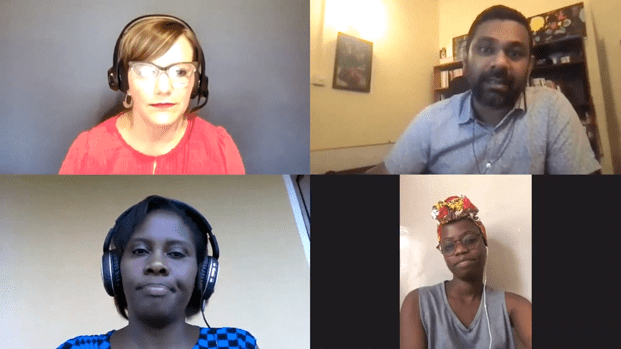Missed the first session in our second module? You can watch the recordings (available in English and French).
About “Connecting Conversations”
“Connecting Conversations” is a series of discussions on adolescent and youth reproductive health—hosted by FP2020 and Knowledge SUCCESS. Over the next year, we will be co-hosting these sessions every two weeks or so on a variety of topics. We’re using a more conversational style, encouraging open dialogue and allowing plenty of time for questions. We guarantee you will be coming back for more!
Want to Get Caught Up on Module One and Two?
Our first module, which started on July 15 and ran through September 9, focused on a foundational understanding of adolescent development and health. Presenters—including experts from organizations such as the World Health Organization, Johns Hopkins University, and Georgetown University—offered a framework for understanding adolescent and youth reproductive health, and implementing stronger programs with and for young people.
Our second module, Parents, Preachers, Partners, Phones: Engaging Critical Influencers to Improve Young People’s Reproductive Health, began on November 4 and concluded on December 16. Speakers included experts from Love Matters Naija, Hidden Pockets Collective India, Pathfinder International, and Tearfund United Kingdom. Discussions explored key learnings on engaging parents, religious leaders and communities, partners, and digital approaches to improve young people’s reproductive health.
You can watch recordings (available in English and French) and read session summaries to catch up.








